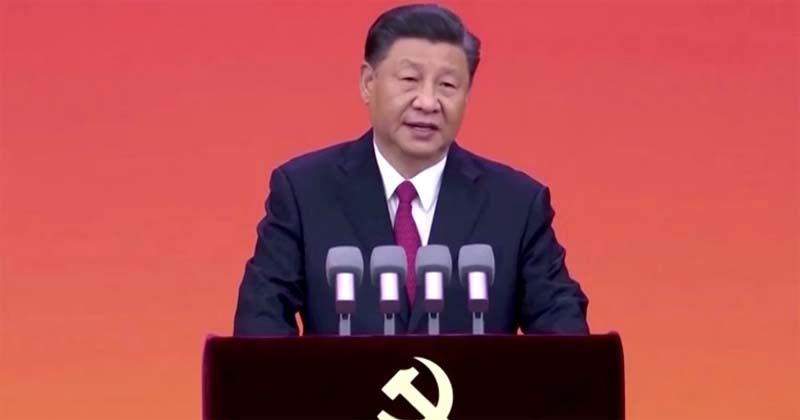MACAO, Dec 20: During a ceremony marking the 25th anniversary of Macao’s handover to China, Chinese President Xi Jinping emphasized the need for the casino-centric region to diversify its economy as he inaugurated the newly formed government of the former Portuguese territory on Friday.
Sam Hou Fai, the new Chief Executive and Macao’s first leader originating from mainland China, committed to tackling the territory’s uneven and disorganized economic growth.
Since its return to Chinese sovereignty in 1999, Macao has evolved from a gambling monopoly into the leading gaming destination worldwide, attracting large numbers of tourists from mainland China.
While the casino industry has raised living standards, there are growing concerns about the region’s excessive reliance on this sector for economic stability.
Many young residents express frustration over limited job opportunities in a tourism-centric economy, which hampers broader economic diversification. Critics argue that years of tourist-driven financial influx have stifled local business innovation, resulting in residents often relying on personal relationships rather than civic engagement to address issues.
At a gala dinner on Thursday, Xi commended Macao’s advancements in economic diversification over the past five years and its increased global influence. He urged the city to broaden its international role and attract global talent to help shape a better Macao.
The following day, he asserted that plans for industrial development should be enhanced, with improved policy support and increased investments to foster new industries capable of competing on an international level—remarks deemed more pointed and explicit than his previous statements.
“The government of this special administrative region and all sectors of society need to pay greater attention to the younger population, creating a supportive environment that fosters their growth, talent development, and aspirations,” he stated.
Chief Executive Sam Hou has pledged to accelerate plans to enhance tourism and expand into sectors such as traditional Chinese medicine, finance, technology, exhibitions, and commerce.
Whereas political activism has never posed a significant threat to Beijing in Macao, authorities have tightened control in recent years, especially after the extensive anti-government protests in Hong Kong in 2019.
Public dissent has largely been suppressed, with events such as vigils for the Tiananmen Square crackdown being banned, and pro-democracy candidates excluded from legislative elections. In the previous year, the region further tightened its national security legislation.
Xi reiterated that “national sovereignty, security, and development interests are paramount,” while emphasizing the importance of preserving the city’s autonomy. He noted that security is a foundational requirement for development, urging residents to appreciate their hard-won stability and peace.
Similar to neighboring Hong Kong, Macao is governed separately from the rest of China, allowing it to retain elements of Western-style economic and social systems. It is the only city in China where casino gambling is legally permitted.
With Beijing’s policy framework now steering Macao’s development, the gambling hub is solidifying its economic ties and social integration with the adjacent Guangdong province.
China has established a special zone on Hengqin Island, part of Zhuhai, which is co-managed by Guangdong and Macao, aimed at nurturing new industries. By 2035, approximately 120,000 Macao residents are expected to reside in this zone.
Xi called for Macao to actively engage in the Greater Bay Area initiative, which seeks to connect Macao, Hong Kong, and nine other cities in Guangdong into a cohesive economic powerhouse.
Xia’s three-day visit to Macao is set to conclude on Friday. During his trip, he toured a local university, the special zone on Hengqin Island, and held discussions with former leaders of Macao and Hong Kong’s Chief Executive, among others. (AP)


Leave a Reply